Looking forward, Spring in Europe means only one thing to the cycling fan — the Spring Classics.
Legendary one-day races like Liege-Bastogne-Liege, The Tour of Flanders and Paris-Roubaix draw huge crowds and audiences to witness the hardest of pros battle over famous or infamous cobbles and climbs in often terrible weather.
Many of the Classics have amateur versions the day before so the enthusiast can ride the same bumpy roads and hills in the same conditions before cheering the peloton 24 hours later. The Tour of Flanders Cycle attracts 16,000 riders.
If you have the cash to spare a number of firms while provide a a bucket/bike-it list experience for the ages.
Check out Going Belgian: Riding the Spring Classics for a rundown of the Spring Classics, their gran fondo/sportive/tour versions and options to get there.
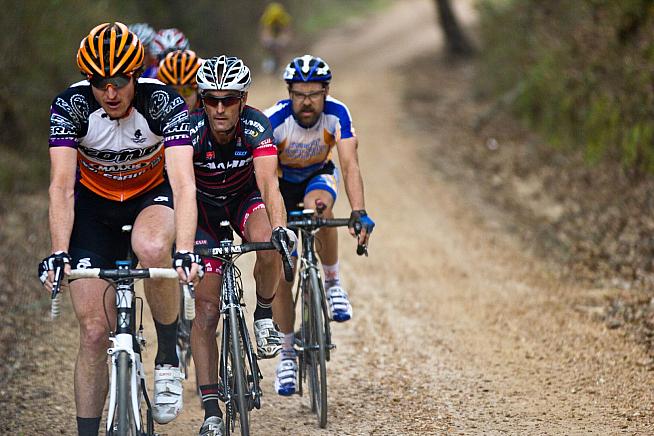
You too can live out your Flemish fantasies from Canada to California with the likes of the Hell of Hunterdon, The Belgian Waffle Ride, Paris to Ancaster, Gran Fondo Ephrata and, of course, Battenkill, "America's Queen of the Classics".
Many events adopt the terminology and imagery of the Low Countries — looking at you Roubaixes — while others mix up the essential ingredients of the Classics, early season unpredictable weather, challenging surfaces and an emphasis on rider resilience.
In Europe the cobbles of Northern France and Begium are now carefully preserved for cycling and protected from the road-laying machines while rural America and Canada are blessed with mile after mile of unsealed gravel and dirt roads to create a uniquely North American challenge.
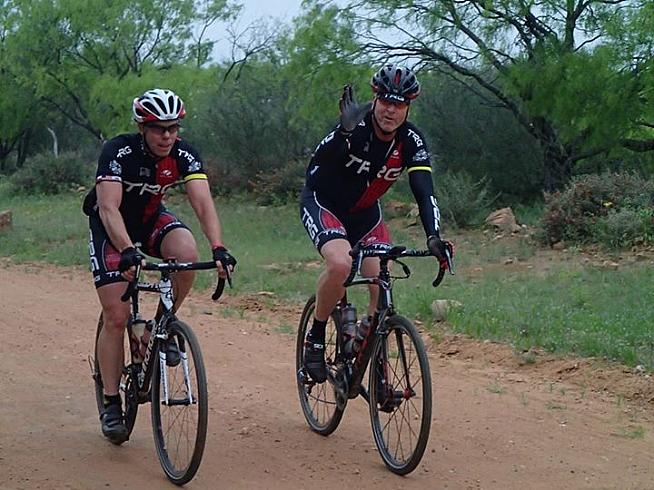
The "Spring Classics" - North America
Feb 28 Sourland Semi-Classic, New Jersey
March 12 Rouge Roubaix, Louisiana
March 19 Milan - San Remo, Italy
March 19 Waterloo Grit and Gravel, Michigan
March 19 Redlands Strada Rossa, California
March 20 Gran Fondo Ephrata, Washington
March 20 Love Valley Roubaix, North Carolina
March 25 E3 Harelbeke, Belgium
March 26 Dirty Devil, California
March 26 Hell of Hunterdon, New Jersey
March 27 Gent-Wevelgem, Belgium
April 2 Castell Grind, Texas
April 3 Tour of Flanders, Belgium
April 3 Vermont Overland
April 3 Steaming Nostril, Ontario
April 10 Paris-Roubaix, France
April 10 Darby Roubaix, North Carolina
April 16 Rasputitsa, Vermont
April 16 Barry-Roubaix, Michigan
April 17 Amstel Gold Race, Netherlands
April 17 Lu Lacka Wyco Hundo, Pennsylvania
April 20 La Fleche Wallonne, Belgium
April 23 Fools Classic, Pennsylvania
April 23 Battenkill Spring Preview, New York
April 23 Muddy Onion Spring Classic Dirt Road Ride, Vermont
April 30 Fleche Buffoon, Pennsylvania
April 24 Liege-Bastogne-Liege, Belgium
April 24 Belgian Waffle Ride, California
April 24 Paris to Ancaster, Ontario
May 21 Tour of Battenkill, New York
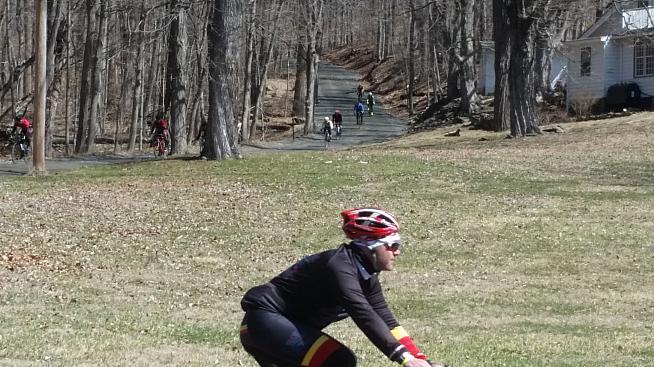

Lu Lacka Wyco Hundo also makes the most of the terrain of Pennsylvania to "show you things you haven't seen, teach you things about yourself, and challenge your bike to keep you going when you can't see where the road and gravel and mud end, and civilization begins".
Four Roubaixes make the list -- six if you count Battenkill (Tour of and Spring preview), which was Battenkill-Roubaix in the early years.
Rouge Roubaix in Louisiana is unlikely to see true Belgian weather, but the temperature can vary from freezing to 80 degrees and humid while the 106-mile course ranges from smooth tarmac to sandy gravel and the "plain bad". The open gran fondo runds the day before the licensed racing.

Darby Roubaix, formerly Tom Dula's Revenge, is number two in the series, which is run by Blue Mountain Revival Productions and their talented design department.
Heading North to Michigan, "like the classic it's named after, Barry-Roubaix will test riders against (80%) rolling gravel roads, pavement, one mile of rough two track, rocks, sand, mud, and possibly snow and ice", is the warning (or is it a challenge) issued. Entries are capped at 3,500 for the "largest gravel road race in the world".
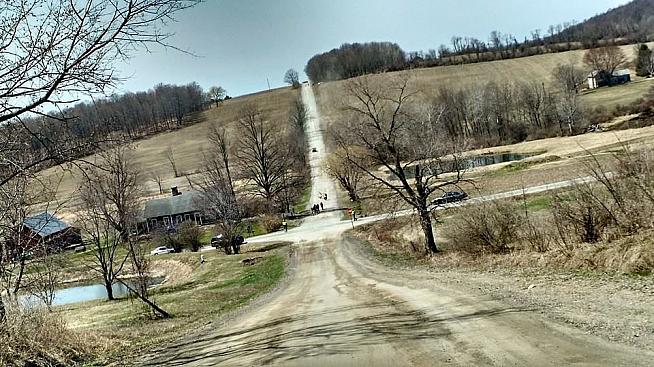

Earlier in April on the 3rd, and thus even more at the mercy of the weather north of the border, is the wonderfully named Steaming Nostril (and the shorter Runny Nose).
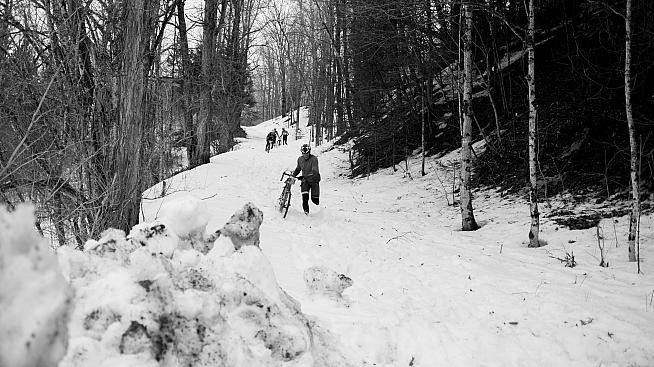
The action is not confined, to the North and East, however. The Castell Grind (Read a Ride Report) on April 2 offers gravel grinding Central Texas style with miles of rolling hills on remote gravel roads in the middle of nowhere.
And on the West Coast Gran Fondo Ephrata has become a Pacific Northwest "spring classic" with 80 miles of primitive central WA back roads, 5000′ of climbing. "Come prepared to be unprepared."

Nothing wrong with an Italian angle given that Milan-San Remo kicks of the Spring Classics and Tuscany's Strada Bianche in early March is growing in importance rapidly.
The Waffle Ride -- "the Country's Most Unique Cycling Event" -- shouts its Belgian inspiration and is a monster with 14 dirt sections across 140 miles and over 11,000 feet of climbing.
The Dirty Devil -- "California's premier (and most challenging) road bike ultra century" -- matches the BWR for climbing in 127 miles and 28 miles of that is dirt roads. You'll deserve that beer after either one.
No matter which event you choose to do just remember to ride like a Belgian.
0 Comments







